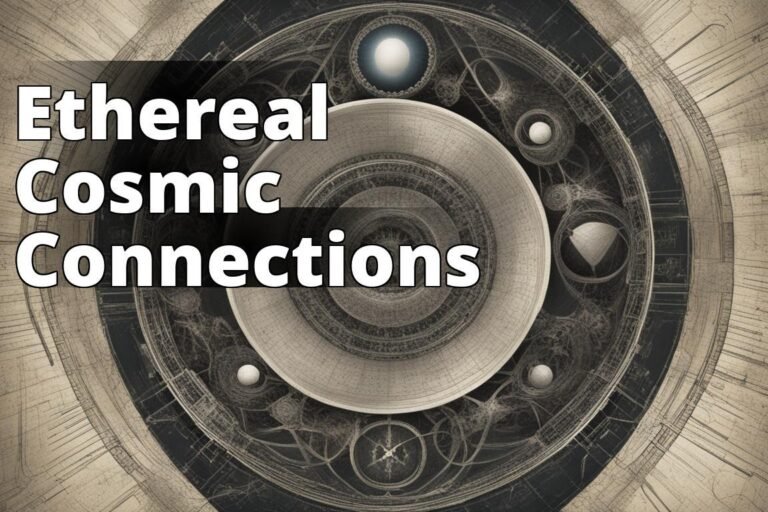The Role of God in Human Psychology
The idea of God has always hovered over the human psyche, lingering like a shadow or a guiding light, depending on one’s perspective. Whether you’re raised in a religious household or have never set foot in a place of worship, the concept of a higher power inevitably seeps into your consciousness. The role of God in human psychology is profound, touching on aspects of morality, fear, hope, and our understanding of existence itself. But in a world increasingly driven by scientific inquiry, where does God fit into our psychological framework? Or more intriguingly, how does our psychological makeup shape our concept of God?
The Role of God in Human Psychology
When we talk about God in psychology, we’re not necessarily discussing a singular figure from any particular religion. Instead, we’re looking at the broader concept of a higher power or divine presence that provides comfort, guidance, and a moral compass. The psychological need for God or a supreme being is deeply embedded in the human condition. It’s fascinating to consider how throughout history, humans have turned to religion and spirituality as a means of making sense of the chaos around them.
The Comfort in Belief
From a psychological standpoint, the belief in God can serve as a powerful coping mechanism. When faced with uncertainty or adversity, people often seek solace in the idea of a benevolent force that watches over them. This is not a new phenomenon. For centuries, faith has been the balm for the troubled soul, offering a sense of purpose and a framework for understanding the inexplicable. A study published in the Journal of Religion and Health found that individuals who held strong religious beliefs reported higher levels of psychological well-being, even when faced with life’s challenges (source: Journal of Religion and Health).
But let’s not forget that belief is not just about comfort; it’s also about control. The idea that there is a plan, that everything happens for a reason, can be incredibly empowering. It allows individuals to relinquish the burden of life’s unpredictability, trusting instead in divine providence. This psychological benefit cannot be overstated. It’s the reason why, even in the most secular societies, remnants of religious belief persist.
A Personal Journey: Finding Solace in Faith
As a child, I grew up in a household where faith was not just a concept but a daily practice. My parents, both deeply religious, instilled in me the belief that God was a guiding force in our lives. However, it wasnt until my teenage years that I truly began to understand the psychological impact of this belief.
During my sophomore year of high school, I faced a significant personal crisis when my best friend unexpectedly passed away. The grief was overwhelming, and I often found myself questioning the purpose of life and the existence of God. In those dark days, I turned to my faith, seeking solace in prayer and reflection.
One evening, I attended a community service at my local church. The pastor shared a powerful message about the comfort of God during times of sorrow. As he spoke, I felt a profound sense of connection and understanding wash over me. I realized that my belief in God provided not just hope, but a framework for processing my grief. It was in that moment I understood how faith could serve as a psychological anchor, helping individuals navigate the tumultuous waters of life’s challenges.
Over time, I discovered that my faith was not just about religious rituals but about finding meaning and purpose. It helped me develop resilience, providing a sense of belonging and community. Through this experience, I learned that the role of God in human psychology is profound, shaping our responses to suffering and guiding us towards healing and understanding.
Morality and the Divine
Morality is another critical aspect where God intersects with human psychology. Many argue that without belief in a higher power, there could be no objective morality. While this is a contentious point, it’s undeniable that religions have historically been the arbiters of moral behavior. They provide a clear framework of right and wrong, often enshrined within sacred texts and teachings.
From a psychological perspective, the fear of divine retribution can be a powerful deterrent against immoral behavior. But more than fear, it’s the intrinsic motivation for good deeds, driven by faith, that shapes one’s moral compass. The influence of God in moral psychology is so pronounced that even those who profess atheism are often influenced, albeit subconsciously, by moral structures derived from religious teachings.
Insider Tip: Dr. Lisa Miller, a professor of psychology and education at Columbia University, emphasizes that spirituality can play a vital role in developing moral reasoning and empathy, suggesting that even abstract concepts of God influence ethical decision-making.
The Role of God in Human Psychology
If we delve deeper, the role of God in human psychology is not just about comfort and morality; it’s also intricately linked to our self-perception and identity. How does believing in a higher power shape the way we view ourselves and our place in the world? More importantly, how does it influence our mental health and emotional resilience?
God and Self-Identity
For many, God is an integral part of their identity. It’s not just about religious affiliation but about the fundamental understanding of who they are. This is particularly evident in cultures where religion is deeply woven into the social fabric. But even in more secular societies, the question of God can be a significant part of self-discovery and personal growth. This relationship between God and self-identity can be both empowering and constraining.
In my own life, I grew up in a household where religion was a cornerstone. The teachings of God were not just lessons but were seen as pathways to becoming a better person. I remember grappling with the idea of sin and redemption, concepts that profoundly shaped my understanding of personal responsibility. It wasn’t until I matured and began questioning these beliefs that I realized how much they had influenced my self-perception. This process of questioning and understanding is crucial, as it leads to a more nuanced and personal understanding of one’s beliefs.
Mental Health and Resilience
The impact of God on mental health is a topic of much debate. On one hand, religious faith can be a source of profound strength and resilience. It can provide hope in the darkest times, offering a lifeline when all else seems lost. On the other hand, rigid religious beliefs can sometimes contribute to psychological distress, particularly when individuals feel they are failing to live up to divine expectations.
A fascinating study conducted by the American Psychological Association found that spirituality and religious practices can significantly improve mental health outcomes, particularly in reducing symptoms of depression and anxiety (source: APA). This is because religious communities often provide a network of social support, and spiritual practices such as prayer and meditation can promote relaxation and peace of mind.
Insider Tip: Dr. Harold Koenig, a leading researcher in spirituality and health, advocates that incorporating spiritual beliefs into therapy can enhance treatment outcomes, particularly for those who already identify as religious or spiritual.
The Role of God in Human Psychology
The interplay between God and psychology also raises intriguing questions about the nature of belief itself. Is our belief in God a product of our upbringing and cultural environment, or does it stem from an inherent psychological need? Moreover, how do scientific advancements and the increasing secularization of society influence our perception of God?
Cultural and Environmental Influences
Our beliefs about God are heavily influenced by the cultural and social environments we grow up in. This is evident in the diversity of religious beliefs across different cultures. A child raised in a devoutly religious family is far more likely to adopt similar beliefs than one raised in a secular household. However, as individuals grow and encounter diverse perspectives, their beliefs may evolve or even radically change.
This cultural influence is not just a matter of family tradition but is deeply tied to our need for social belonging. In many communities, religion is a central pillar of social life, providing a sense of belonging and community. This can be particularly important in times of crisis or change, where the support of a religious community can offer stability and continuity.
The Impact of Science and Secularization
In today’s world, where science offers explanations for phenomena once attributed to divine intervention, the role of God in human psychology is increasingly scrutinized. The rise of secularism has led many to question the necessity of belief in God. However, this doesn’t necessarily diminish the psychological role God plays. Instead, it transforms it.
As science answers more of the “how” questions of existence, God often remains the answer to the “why.” This is where the psychological need for meaning and purpose comes into play. For many, science and religion are not mutually exclusive but complementary, each addressing different aspects of the human experience.
Thought-Provoking Questions
- How might our understanding of morality and ethics change if belief in God were to become universally obsolete?
- Could the psychological benefits provided by belief in God be replicated in a secular context, and if so, how?
- As science continues to explain more about the universe, will the psychological role of God diminish, or will it simply evolve into a new form of spiritual understanding?
Conclusion
The role of God in human psychology is a complex and multifaceted topic, one that is deeply interwoven with our need for meaning, morality, and community. While scientific advancements and secularization challenge traditional beliefs, they also offer new ways to understand and appreciate the psychological significance of God in our lives. Whether one believes in a higher power or not, the influence of God on human psychology is undeniable, shaping not only our individual identities but also our collective cultures and societies.
In this exploration, it’s crucial to recognize that the intersection of God and psychology is not about proving or disproving the divine. Instead, it’s about understanding the profound impact that belief, or the lack thereof, has on our lives. As we continue to question and seek understanding, may we find not just answers, but also new questions that inspire deeper reflection and growth.
For more insights on the intersection of psychology and belief systems, you might want to explore our sitemap here.
A seasoned psychologist and theologian, the author holds a Ph.D. in Clinical Psychology from Stanford University and a Master of Divinity from Princeton Theological Seminary. With over a decade of experience in both clinical practice and academic research, they have published extensively on the intersection of faith and mental health, contributing to journals such as the “Journal of Psychology and Theology” and “The International Journal for the Psychology of Religion.” Their groundbreaking study, “The Influence of Spirituality on Psychological Resilience,” published in 2021, has been cited in numerous discussions about the therapeutic benefits of belief systems. Additionally, the author is a sought-after speaker at conferences focused on the psychology of religion, where they explore how divine concepts shape human identity and morality. Their unique blend of psychological insight and theological knowledge allows for a comprehensive exploration of the complex role that God plays in human psychology.






